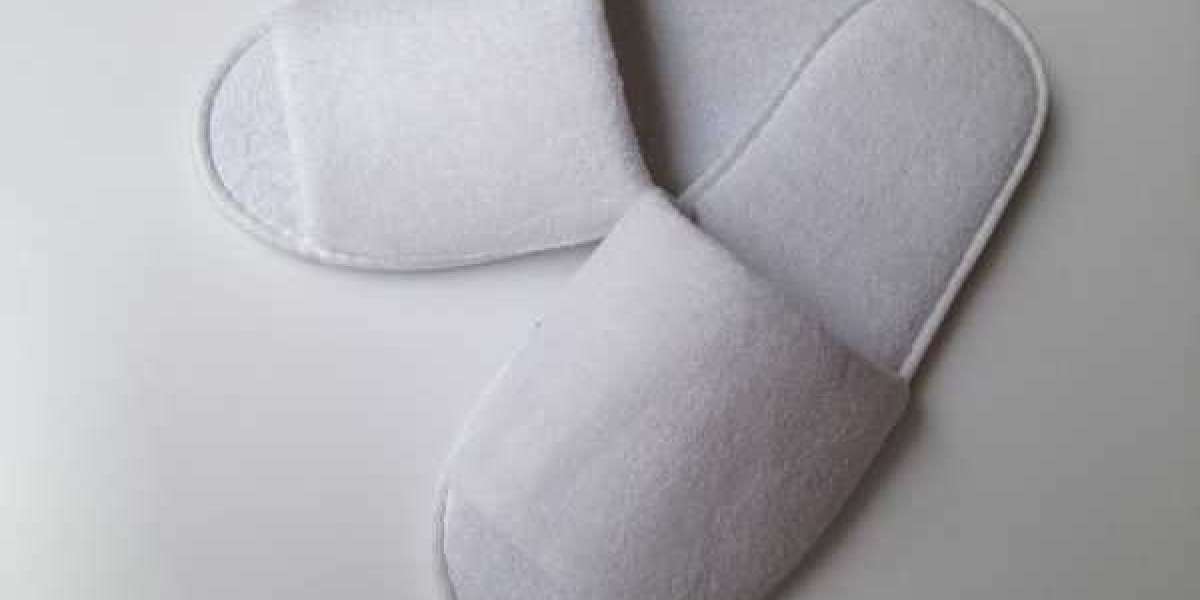Hotel shampoo is a subtle yet significant detail in the overall guest experience. The sight of neatly arranged shampoo bottles in a hotel bathroom brings comfort and luxury, often marking the beginning of a guest's relaxation. These shampoos are more than just hair care products; they represent the hotel's commitment to quality and guest satisfaction. The choice of shampoo, including its fragrance, packaging, and ingredients, can reveal much about the hotel's brand and values. Also, hotel-shampoo is designed to cater to a broad range of hair types and conditions, ensuring every guest feels pampered.
Sustainability Concerns
The environmental impact of small plastic shampoo bottles has led many hotels to rethink their approach to toiletries. Recognizing the ecological footprint of single-use plastics, hotels are exploring various ways to minimize waste.
One popular solution is the installation of refillable dispensers in bathrooms, drastically reducing plastic usage. Additionally, hotels are turning to biodegradable packaging materials and partnering with eco-conscious brands to offer more sustainable options.
These initiatives align with the growing consumer demand for environmentally responsible practices. By adopting such measures, hotels not only lessen their environmental impact but also enhance their appeal to eco-minded guests, making sustainability a cornerstone of modern hospitality.
The Branding Strategy
Hotels strategically use toiletries, including shampoo, to reinforce their brand identity and convey a message of quality and care. The shampoo's fragrance, design, and origin can create a sensory experience that aligns with the hotel's ethos.
For instance, a luxury hotel might opt for high-end brands or collaborate with perfumers to create a signature scent, enhancing the sense of exclusivity. In contrast, eco-friendly hotels may choose organic or sustainably sourced shampoos, appealing to environmentally conscious guests. Bespoke packaging featuring the hotel's logo and color scheme further strengthens brand recognition and provides a cohesive guest experience.
Each element of the shampoo's presentation and composition is meticulously chosen to reflect the hotel’s values, making even a simple shower a memorable part of the stay. By doing so, hotels can subtly communicate their commitment to excellence, leaving guests with a positive and lasting impression.
Quality vs. Quantity
Quality can vary significantly among hotel-shampoos, influencing guest satisfaction. Luxury hotels often invest in high-end, brand-name shampoos known for their superior formulations and elegant presentation. These establishments understand that offering high-quality shampoo is part of delivering a comprehensive luxury experience. On the other hand, budget hotels might priorities cost-efficiency, providing simpler, no-frills shampoos that meet basic hygiene needs.
The decision on which shampoo to provide is influenced by budget constraints, the hotel’s target market, and brand positioning. High-end establishments might partner with renowned brands to create bespoke products, while more economical hotels focus on practicality and functionality. The choice also extends to factors like fragrance and packaging.
While luxurious hotels may offer shampoos with sophisticated scents and aesthetically pleasing packaging, budget hotels might opt for more generic options. Nonetheless, even simpler shampoos must be effective and cater to various hair types to ensure guest satisfaction. Hotels must balance cost and quality to meet guest expectations without compromising their financial model. This careful selection process underscores the broader strategy of maintaining high standards while effectively managing operational costs.
Guest Expectations
Guest expectations for hotel-shampoo can vary widely depending on the type of establishment. In upmarket hotels, guests often expect premium products that offer a luxurious experience with high-quality ingredients, sophisticated fragrances, and elegant packaging.
These elements contribute to the overall sense of indulgence and attention to detail that guests associate with high-end accommodation. In contrast, guests at budget hotels typically look for a functional and reliable shampoo that meets basic hygiene needs.
Regardless of the hotel's category, the shampoo should be effective and cater to various hair types. Meeting these expectations is crucial for maintaining positive guest reviews and encouraging repeat visits. High-quality products, even in a modest setting, can surprise guests and enhance their perception of the hotel. Moreover, consistent quality across all rooms ensures that every guest enjoys the same level of comfort and care, reinforcing the hotel's reputation for reliability.
Economic Considerations
The selection of shampoo significantly impacts a hotel’s operational budget. High-end, branded shampoos often come with a hefty price tag, influencing the cost structure of maintaining guest amenities. Consequently, hotels must strike a delicate balance between offering quality products and maintaining financial viability. Bulk purchasing can offer some cost savings, but this must be weighed against the necessity of preserving the brand’s image and meeting guest expectations.
Economic considerations also extend to the supply chain. Partnering with reputable suppliers who can provide consistent quality at competitive prices is crucial. Hotels must negotiate favorable terms to manage costs while ensuring a steady supply of high-quality products. Additionally, fluctuations in market prices for raw materials can impact the overall expense of toiletries, necessitating flexible and strategic procurement practices.
Staff training and storage logistics further contribute to the economic equation. Ensuring staff efficiently manage inventory and reduce waste can result in cost savings. Proper storage solutions are also essential to maintain the integrity of the products, preventing spoilage or damage. Finally, the shift towards sustainable options, such as refillable dispensers, while initially costly, can result in long-term savings by reducing waste and procurement expenses. These sustainable practices support the environment and align with modern consumer preferences, potentially enhancing guest satisfaction and loyalty.
Ingredients in Hotel Shampoo
Hotel shampoo frequently contains a blend of ingredients tailored to meet the needs of a diverse guest population. Standard components include sodium Lauretha sulphates, which acts as a cleansing agent, glycerin for its moisturizing properties, and pantheon, known for its conditioning benefits.
These ingredients are chosen for their efficacy in delivering a satisfactory hair care experience, regardless of hair type. Additionally, many hotel-shampoos incorporate botanical extracts and natural oils to enhance the sensory appeal and provide additional care benefits. The formulations are often designed to perform consistently across different water qualities, ensuring guests have a positive experience regardless of the hotel's location.
Innovations in Hotel-shampoo
Recent advancements in shampoo formulations:
The latest innovations in hotel-shampoos focus on enhancing performance and guest satisfaction. Formulators are increasingly incorporating advanced ingredients such as amino acids, peptides, and hyaluronic acid, which are known for their hydrating and strengthening properties. Additionally, there's a growing trend towards using plant-based and vegan-friendly components, which appeal to eco-conscious Travellers. These new formulations aim to provide a luxurious experience whilst catering to various hair types and conditions.
Future trends in hotel toiletries:
The future of hotel-shampoos seems poised for further evolution. Innovative packaging featuring QR codes and augmented reality is emerging as a tool for providing guests with detailed information about the product's ingredients and benefits. Personalized shampoo options, tailored to individual hair care needs, are also gaining traction. Another exciting development is the integration of sustainable practices, such as waterless shampoo formulations, which reduce water consumption during production and use. These trends reflect a broader shift towards customisation, technology, and sustainability in the hospitality industry, aiming to offer an elevated and responsible guest experience.
Travel and Personalization
Hotels are increasingly focusing on customisation to enhance guest experiences. One emerging trend is offering personalized toiletries, including shampoos, tailored to individual preferences and needs. This approach is especially prevalent in luxury hotels, where the guest experience is paramount. Personalized shampoo options may include a choice of fragrances, ingredients suited for spa edifice hair types, or even bespoke formulations created in collaboration with premium brands. This level of personalization can significantly elevate a guest's perception of their stay, making them feel valued and cared for.
Technological advancements are also crucial in enabling these customized experiences. For example, hotels can use guest profiles and data analytics to anticipate preferences, ensuring that the provided toiletries meet individual needs. This enhances the guest experience and fosters brand loyalty, as guests are more likely to return to a hotel that offers such personalized services. Moreover, the move towards personalization reflects a broader shift in the hospitality industry towards offering unique, memorable experiences. By catering to the specific needs of their guests, hotels can differentiate themselves in a competitive market. This strategy is beneficial for guest satisfaction and a powerful marketing tool, attracting new customers through positive reviews and word-of-mouth recommendations.
Challenges in Implementation
Implementing high-quality hotel-shampoo offerings involves logistics, cost management, and guest expectations. One of the primary challenges is sourcing premium products at scale, which necessitates negotiating with suppliers to secure favorable terms. This is further complicated by the need to maintain consistency in product quality across various hotel locations. Inventory management also plays a crucial role, as hotels must ensure that stock levels are adequately maintained without incurring excessive waste or overstocking.
Moreover, integrating sustainable practices such as refillable dispensers or eco-friendly packaging requires an initial investment, which can be a financial strain, particularly for smaller establishments. Training staff to properly manage these systems is essential to ensure effective implementation and maximize the benefits of sustainable initiatives. Another challenge is catering to guests' diverse hair care needs.
A one-size-fits-all approach may not be suitable, and hotels must carefully select formulations that cater to a broad spectrum of hair types and conditions. This often requires working closely with suppliers to develop or choose versatile products that meet these varied needs. Additionally, keeping up with evolving trends and consumer preferences necessitates continual reassessment and potential adjustment of the shampoo offerings. Balancing these factors while ensuring a positive guest experience demands a strategic and flexible procurement and inventory management approach.
Conclusion
Hotel shampoo plays a significant role in shaping the overall guest experience. Its quality, presentation, and ingredients offer more than just hair care; they reflect the hotel's attention to detail and commitment to guest satisfaction. Hotels strategically select shampoos to align with their brand values through luxury, eco-friendliness, or cost-effectiveness. Furthermore, the shift towards sustainable practices, such as refillable dispensers and biodegradable packaging, highlights the industry's response to environmental concerns. The increasing trend towards personalization, enabled by technological advancements, transforms how hotels cater to individual guest needs.
FAQs
1. Is hotel shampoo of good quality?
The quality of hotel shampoo can vary widely depending on the type and standard of the hotel. Luxury hotels typically offer high-end, branded shampoos known for their superior formulations and sophisticated fragrances. These products often contain premium ingredients for a luxurious hair care experience. In contrast, budget hotels may opt for more basic shampoos that still meet essential hygiene standards but lack the opulence of their high-end counterparts.
2. Why do hotels provide small bottles of shampoo?
Hotels offer small bottles of shampoo for convenience and hygiene purposes. These single-use containers ensure each guest receives a fresh product, untouched by previous users. Additionally, the compact size makes it easy for guests to use during their stay and take with them if they wish.
3. How are hotels addressing sustainability with their toiletries?
Hotels are increasingly adopting sustainable practices to address environmental concerns associated with single-use plastics. One common approach is using bulk dispensers in bathrooms, significantly reducing plastic waste. Additionally, hotels are turning to biodegradable packaging materials and partnering with eco-conscious brands to offer more environmentally friendly options.
Related Business Listings |








